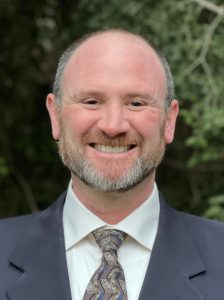Focus on RO: Volunteering With the ABR Allows Radiation Oncologists to Give Back
By Michael Yunes, MD, Associate Executive Director for Radiation Oncology
June 2024;17(3):9

The heart and soul of the ABR is the amazing core of approximately 1,300 volunteers, including more than 300 in radiation oncology. In our profession, physicians continually give to patients and their families, but we also find time and energy to support many other causes.
The ABR plays a vital role in preserving the quality of our field, developing future physicians, and maintaining public trust. One person or even a few people cannot perform this task, which is why volunteers are required to govern and manage the vast amount of information that is essential to our mission.
There are many opportunities to engage with the ABR with widely varied time requirements. Applying is simple: you can reach the application directly through myABR. On the application, you will be asked for your CV, for references, and in what area you would like to volunteer. Many people choose to volunteer as an expert in a clinical disease site, but that is not necessary nor what the ABR always needs. While everyone is aware that we have disease specialty committees, we also need clinicians for radiation and cancer biology, medical physics for radiation oncology, and many other important roles. Below is a list of volunteer committees to which any ABR diplomate participating in Continuing Certification can apply, regardless of clinical specialty or practice setting. Volunteers must be certified for one year to be eligible for many committees, two years for exam question writing, and at least five years to be an oral examiner.
It is important to note that while disease site expertise is helpful, we strive to have general practitioners and private practice committee members in each committee, including medical physics and cancer biology, to ensure that quality and practice are reflective of the field of radiation oncology at large.
Once submitted, a volunteer application will be reviewed by the associate executive director (AED), who will request a simple letter of reference. Upon receipt of reference letters, the AED will approve all suitable applicants, who then move on to the assignment process. The approved volunteers will be reviewed by the radiation oncology trustees and committee chairs to determine which applicants most appropriately fit the openings on each committee.
Volunteer terms are for three years and may be renewed once. To provide an opportunity for as many people as possible to participate, it is important to have a standard policy for rotating members. Several of the committees have waiting lists, whereas others have current availability for practicing clinicians in medical physics and cancer biology.
Once a volunteer has proven excellence on a committee, they can potentially progress into leadership, participate as an oral examiner, or even apply as a trustee when an opening becomes available.
Volunteering with the ABR is often cited as one of the most rewarding academic activities that we can experience as radiation oncologists. We have a chance to “give back” and shape the future of our specialty, which has given us so much. I would strongly encourage anyone who has a desire to engage in volunteerism to consider applying to one of our amazing committees. It cannot be overstated how exciting and gratifying it is to learn about the vast processes involved in maintaining the quality and safety of radiation oncology.
For more information about becoming a volunteer, please see the ABR Volunteer Handbook. Following are the radiation oncology committees:
Qualifying (Computer-based Exam)
Medical Physics for Radiation Oncology
Radiation and Cancer Biology
Clinical
- Breast
- Gastrointestinal (GU)
- Genitourinary (GI)
- Gynecologic (GYN)
- Hematologic and Benign Diseases
- Head, Neck and Skin
- Pediatric and Central Nervous System (CNS)
- Lung, Mediastinum & Sarcoma
- Non-Clinical Skills
Certifying (Oral Exam)
- Breast
- Gastrointestinal (GU)
- Genitourinary (GI)
- Gynecologic (GYN)
- Hematologic and Benign Diseases
- Head, Neck and Skin
- Pediatric and Central Nervous System (CNS)
- Lung, Mediastinum & Sarcoma
Online Longitudinal Assessment (OLA)
Angoff Committees
Continuing Certification Advisory Committee (CC-AC)




